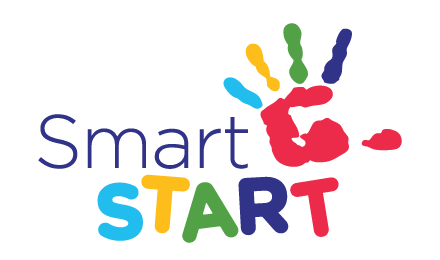Secretariat National Aboriginal and Islander Child Care: SNAICC DEEPLY CONCERNED CHILD CARE REFORMS WILL DENY VULNERABLE INDIGENOUS CHILDREN CRITICAL EARLY LEARNING SERVICES
Melbourne, Australia: Yesterday’s introduction to parliament of proposed early childhood education and care reform legislation by The Hon. Simon Birmingham, Minister for Education and Training, has deeply concerned SNAICC, the national peak body for Aboriginal and Torres Strait Islander child and family services.
While SNAICC welcomes increased investment in early learning and recent changes that will support subsidised access to care for grandparents, we are very concerned that the Jobs for Families Child Care Package may see our most vulnerable Indigenous children miss out on critical early learning services. Fewer subsidised hours, less funding flexibility and no stable, long term funding will further compromise access for those who most need it.
SNAICC Deputy Chairperson Geraldine Atkinson comments: “These changes will diminish our kids’ potential to make a smooth transition to school, compounding the likelihood of intergenerational disempowerment and unemployment. Children will fall behind before they have even started school and suffer greater risks of removal into out-of-home care.”
Notably, the Budget Based Funding (BBF) program – the specific program designed for areas where a user-pay model is not feasible – is being abolished.
It is being replaced by a mainstream user pay model and a safety net – for which very few details are known. However, it is plain that this funding is simply insufficient to cover early years needs for children already accessing early learning, let alone the 15,000-place gap for Indigenous children identified by the 2014 Productivity Commission report. For example, Bubup Wilam Early Learning Aboriginal Child and Family Centre in Melbourne has a $500,000 gap under the current mainstream subsidy and fee based income.
SNAICC appreciates the government’s recognition in its final Regulation Impact Statement, also released yesterday, that “a time-limited programme may not provide enough support for those disadvantaged communities that may have longer term issues” and hopes that this signals a preparedness to explore other approaches.
In response to this, SNAICC calls for an adjustment to the Community Child Care Fund, to include a $100 million Indigenous community-based program designed to support Indigenous services for populations experiencing significant vulnerability.
This program would provide top-up funding for operational costs not covered by the mainstream subsidy and service fees. Staff could therefore focus on children and family needs, rather than complex and uncertain funding systems that depend on parental capacity to manage Centrelink record keeping.
Having a specific program would assist accountability to program goals, ensuring that common objectives are agreed between services and the Government. It would also guarantee that the structures are in place for adequate staffing, resourcing and training to achieve these goals.
Furthermore we urgently need modelling to confirm how this package will impact children attending BBF services and the estimated shortfall for services to operate. With legislation before Parliament now, we need clarity on the system that will apply to our most vulnerable children. Parliamentarians cannot be expected to vote on a system that does not cater for these children.
Ms Atkinson notes “Services are prepared to work with the government, embrace change, and towards a mainstream model. However without a long- term top up provision within the safety net, it is just not feasible. Our most important services for vulnerable Aboriginal and Torres Strait Islander children will simply collapse.”
The Government is also halving subsidised access to families earning under $65k where parents don’t meet work, training or study requirements.
Children in these families will be entitled to 12 hours a week subsidised access to early learning services. At just over 1 day’s care, this will cut deeply into access for Aboriginal and Torres Strait Islander families, and without a strong safety net will mean that vulnerable children will miss out. Evidence suggests three days of access for particularly vulnerable children for maximum early childhood development outcomes.
SNAICC strongly recommends a compromise of up to 20-hours-subsidised care, or 2 days, weekly for families earning under $65k that do not meet the activity test.
Ms Atkinson agrees, commenting “All evidence says that quality, culturally strong early learning services are our children’s best chance to change their trajectories and close the gap in disadvantage for our people. Investing in integrated early learning services in our most vulnerable areas is the best national strategy – the investment is minuscule, the impact enormous, it is a no- brainer! “
Early childhood education and care is vital for educating and empowering the next generation to close the developmental and educational gap for vulnerable Aboriginal and Torres Strait Islander children. The opportunity to get this right should not be wasted.
About SNAICC:
SNAICC is the national non-government peak body in Australia representing the interests of Aboriginal and Torres Strait Islander children and families.
Founded in 1981, SNAICC was established to engage in activities that promote and accommodate a strong voice for Aboriginal and Torres Strait Islander children and their families.
Over the past 30 years SNAICC’s efforts have resulted in many key milestones and achievements both in policy developments at state, territory and federal levels and in developing innovative and useful resources for the sector.
SNAICC is governed by an influential National Executive made up of Aboriginal and Torres Strait Islander community-controlled children and families’ services.
